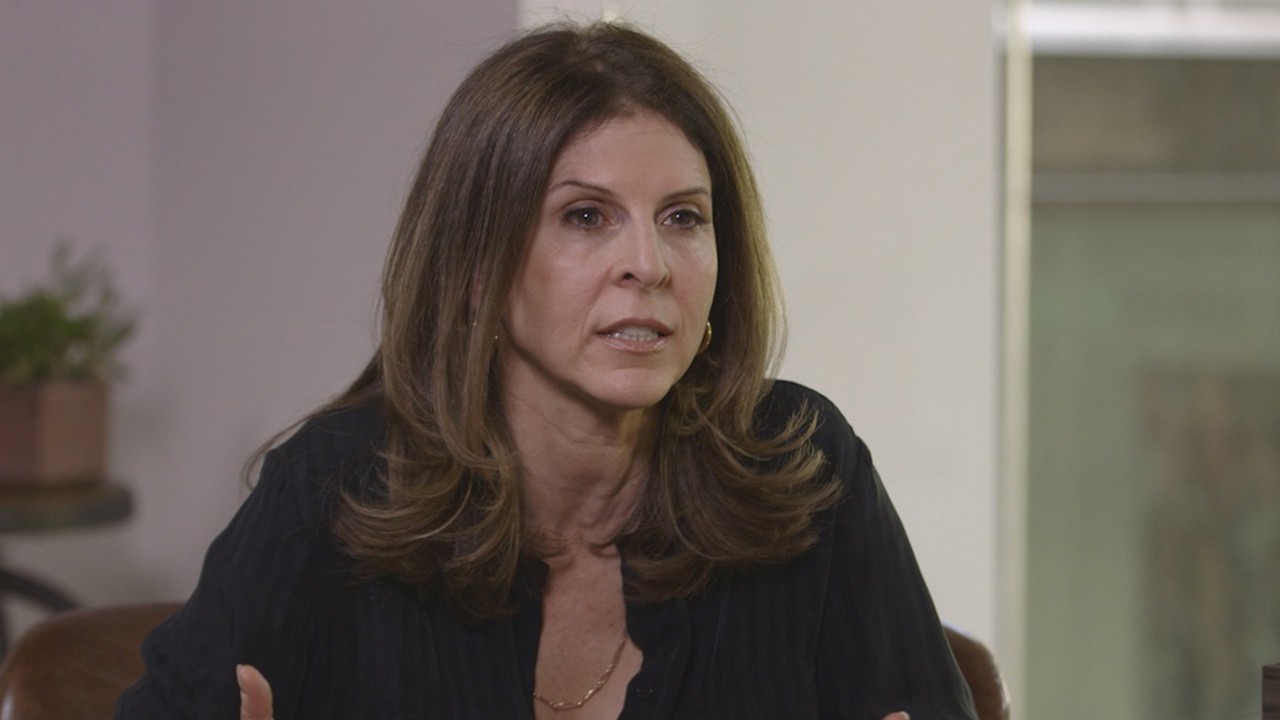Photo by Stephen Voss courtesy Alexandra Brodsky.
You Know Who Rules? is Broadly's December interview series highlighting women and non-binary people who accomplished incredible things during the dumpster fire of a year that was 2017.This April, a study published in the Columbia Journal of Gender and Law took the internet by storm. Titled “‘Rape-Adjacent’: Imagining Legal Responses to Noncensensual Condom Removal,” the new research focused on the term “stealthing,” or the growing trend in which a partner nonconsensually removes a condom during sex, and consequently added new language to the popular discourse around sexual violence and abuse.Since the study’s publication, many victims of this specific type of sexual violence have come forward and use the new language to talk about their experience. Additionally, some lawmakers have also worked to ensure that "stealthing" can be legally classified as rape.Alexandra Brodsky, a legal fellow at the National Women’s Law Center, was the author of the study. Broadly spoke to Brodsky about the study’s lasting impact and her belief that stealthing should have a civil—and not criminal—remedy.This interview has been edited and condensed for clarity.Looking back at 2017, what work are you most proud of?I’m an education attorney at the National Women’s Law Center, and without a doubt I am most proud of the victories we’ve secured for and always alongside our clients. I primarily represent teen girls in sex and race discrimination cases, and together we’ve been able to change their schools for the better and secure meaningful compensation so my clients can thrive and continue to pursue their educations. This has been a truly terrible year for federal civil rights enforcement, with significant rollbacks at the Department of Education. But the strength and determination of my clients keep me going. And their experiences inform our policy and public education work, like our new toolkit on discipline policies that discriminate against girls of color.I’m also proud to be part of the team that created the National Women’s Law Center’s new Legal Network for Gender Equity. Victims of sex discrimination in schools, the workplace, and health care can no longer count on the federal government to enforce their rights. So we’ve recruited over 225 lawyers to join our network and serve those who turn to us for help.Since your study was published, I have heard so many women speak about stealthing—it really seems like this term has become pushed into the mainstream. How does it feel to be changing language and discourse around sexual violence?It’s wild! I wrote the article, which is pretty wonky and technical, in law school and never thought it would be so widely read. To be honest, it’s simultaneously moving and terrible to hear that the piece resonated with so many. I’d obviously rather live in a world where far fewer people saw their own experiences reflected in the article. But I’m glad to have offered a tool to survivors and advocates who want to change the way we think about violence, think about misogyny, and use the law.

Importantly, we've also seen the rise of many proposed anti-stealthing laws along with this increase in dialogue surrounding the term. But you've written that you prefer a change in civil law. What would that look like?I’m so grateful legislators have taken an interest in creating legal remedies to address non consensual condom removal. And I love that women— Assemblywoman Garcia of California, Representative Sargent of Wisconsin, Assemblywoman Paulin of New York—are leading the charge.In my article, I suggest a civil remedy rather than a criminal remedy — basically, a law under which survivors can sue their assailants directly for money damages rather than hoping a prosecutor takes the case. To be honest, I just have very little faith in the criminal legal system. Not all survivors want criminal consequences for their assailants. But even when they do, so many prosecutors decline to bring charges for sexual violence generally because of rape myths like the idea that people can’t be assaulted by their romantic partners, or that people who consent to some sexual activity automatically consent to all sexual contact. And those rape myths are particularly likely to be in play in cases of non consensual condom removal given that the violence definitionally occurs in the context of consensual sex.I want survivors to have control over their cases, and I think civil law provides that opportunity. Of course, that means we have to make sure they have access to legal services. Not to get too into the weeds, but a successful civil remedy must include a provision for attorneys’ fees, which basically means the lawyer can get paid by the court if the survivor wins. That makes it easier for low-income victims to find representation.Do you have any advice to give other women who are working towards their passions, while under Trump's status quo?I don’t know that I have anything easy and upbeat to offer. Things are really bad. I guess I’d say that now is the time to be the person you want to be because we need you now more than ever. And because we all may die in a nuclear holocaust any day.
Advertisement
Advertisement

Importantly, we've also seen the rise of many proposed anti-stealthing laws along with this increase in dialogue surrounding the term. But you've written that you prefer a change in civil law. What would that look like?I’m so grateful legislators have taken an interest in creating legal remedies to address non consensual condom removal. And I love that women— Assemblywoman Garcia of California, Representative Sargent of Wisconsin, Assemblywoman Paulin of New York—are leading the charge.In my article, I suggest a civil remedy rather than a criminal remedy — basically, a law under which survivors can sue their assailants directly for money damages rather than hoping a prosecutor takes the case. To be honest, I just have very little faith in the criminal legal system. Not all survivors want criminal consequences for their assailants. But even when they do, so many prosecutors decline to bring charges for sexual violence generally because of rape myths like the idea that people can’t be assaulted by their romantic partners, or that people who consent to some sexual activity automatically consent to all sexual contact. And those rape myths are particularly likely to be in play in cases of non consensual condom removal given that the violence definitionally occurs in the context of consensual sex.
Advertisement
While this year your study was published and raised a massive conversation around sexual assault, we've also seen the rise of [anti-women rhetoric and policy from] the Trump Administration, which is so dangerous. Does the Trump administration and their anti-women laws frustrate you in your work? Invigorate you?Oh man, they infuriate me every day. I literally developed an eye twitch when Secretary of Education Betsy DeVos made a bunch of rapid, awful announcements about Title IX and sexual harassment policy a few months ago. When I started this job a few months before the election, I thought we’d be riding this wave of progressive victories in courts and legislatures. Instead we’re mostly trying to defend what we have. I hate that. So my team tries to make sure we’re moving forward where there’s room to do so, even as we’re on the defensive on other issues. Right now we’re co-authoring a report on dress codes with girls who have experienced school push out."When I started this job a few months before the election, I thought we’d be riding this wave of progressive victories in courts and legislatures. Instead we’re mostly trying to defend what we have."
Advertisement
You've said in the past to Broadly, "I think that term ["stealthing"] really trivializes the harm; it obscures the violence and makes it sound sneaky and maybe regrettable but ultimately an inevitable part of sex, and that's not true. We deserve better than that.” In your opinion, how can we do better?I use the term “non consensual condom removal.” I know that’s a mouthful. But it makes clear that we’re talking about violence.What do you look forward to next year?My fiancé and I are going to Mexico City in February, send food recs!
